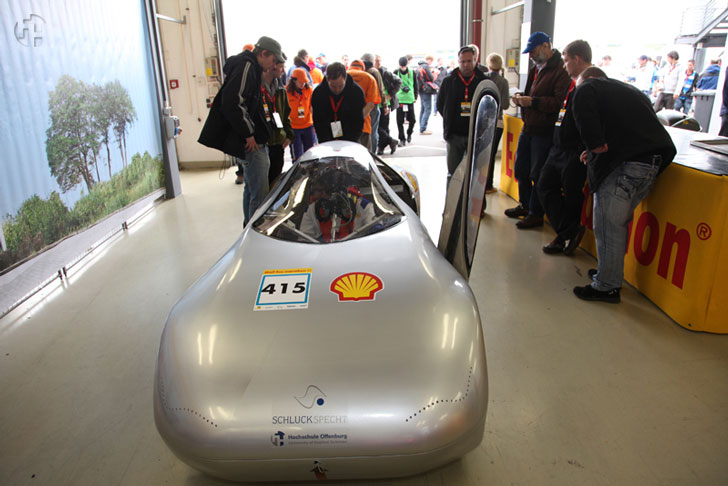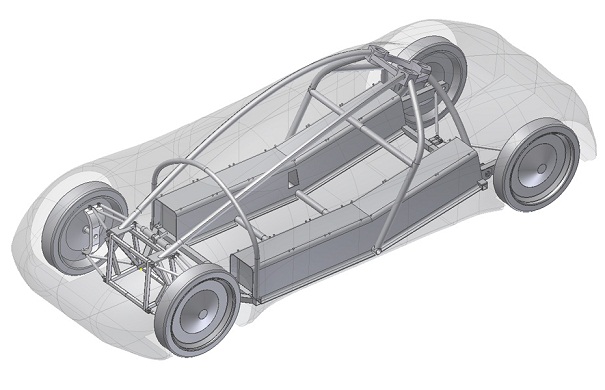“Schluckspecht” EV Goes Over 1,000 Miles on a Single Charge!
In Electronics Electric vehicle records are being broken all the time these days, which is great news for the advancement of EV technology. But the “Schluckspecht” EV (“heavy drinker” in German) from the University of Applied Sciences in Offenburg just broke a pretty significant one: the world record for total distance traveled on a single charge. As we just learned testing the 2012 Chevy Volt EV, range is still a very real issue for electric cars. Some automakers get around the problem by setting up charging station networks, others add range-extending engines to their electric cars — but the Schluckspecht team used aerodynamics, weight reduction, and balancing to bust through the range anxiety problem. The Schluckspecht EV recently proved it could travel farther than any other electric vehicle in the world on a single charge: 1013.77 miles, to be exact!
Electric vehicle records are being broken all the time these days, which is great news for the advancement of EV technology. But the “Schluckspecht” EV (“heavy drinker” in German) from the University of Applied Sciences in Offenburg just broke a pretty significant one: the world record for total distance traveled on a single charge. As we just learned testing the 2012 Chevy Volt EV, range is still a very real issue for electric cars. Some automakers get around the problem by setting up charging station networks, others add range-extending engines to their electric cars — but the Schluckspecht team used aerodynamics, weight reduction, and balancing to bust through the range anxiety problem. The Schluckspecht EV recently proved it could travel farther than any other electric vehicle in the world on a single charge: 1013.77 miles, to be exact!
This world record follows the team’s successful participation in the South-African Solar Challenge 2010, in which the Schluckspecht drove 626.6km (389.35 miles) on public roads – farther (at the time) than any other electric vehicle.
The Schluckspecht boasts little in the way of creature comforts, a fact which helped reduce overall weight and was no doubt helpful during its record-setting drive. However, the engineering behind its design also played a large part in its success, as the Schluckspecht was built from the ground up specifically to chase battery-powered vehicle records in a lab belonging to Ms. Sunmin Lee from Pforzheim University. The body was shaped with “pure aerodynamics” in mind, and – since the vehicle makes use of two wheel-mounted hub-motors – without the need to accommodate an internal engine or transmission.
The chassis (below) is also all-new, specially developed for this kind of experimental EV in cooperation with the Fraunhofer Institute EMI, and the innovative support structure allows for a markedly lighter vehicle that optimally divides loads among a total of 14 lithium-cobalt battery packs, with help from the battery management system developed at the University of Offenburg.

